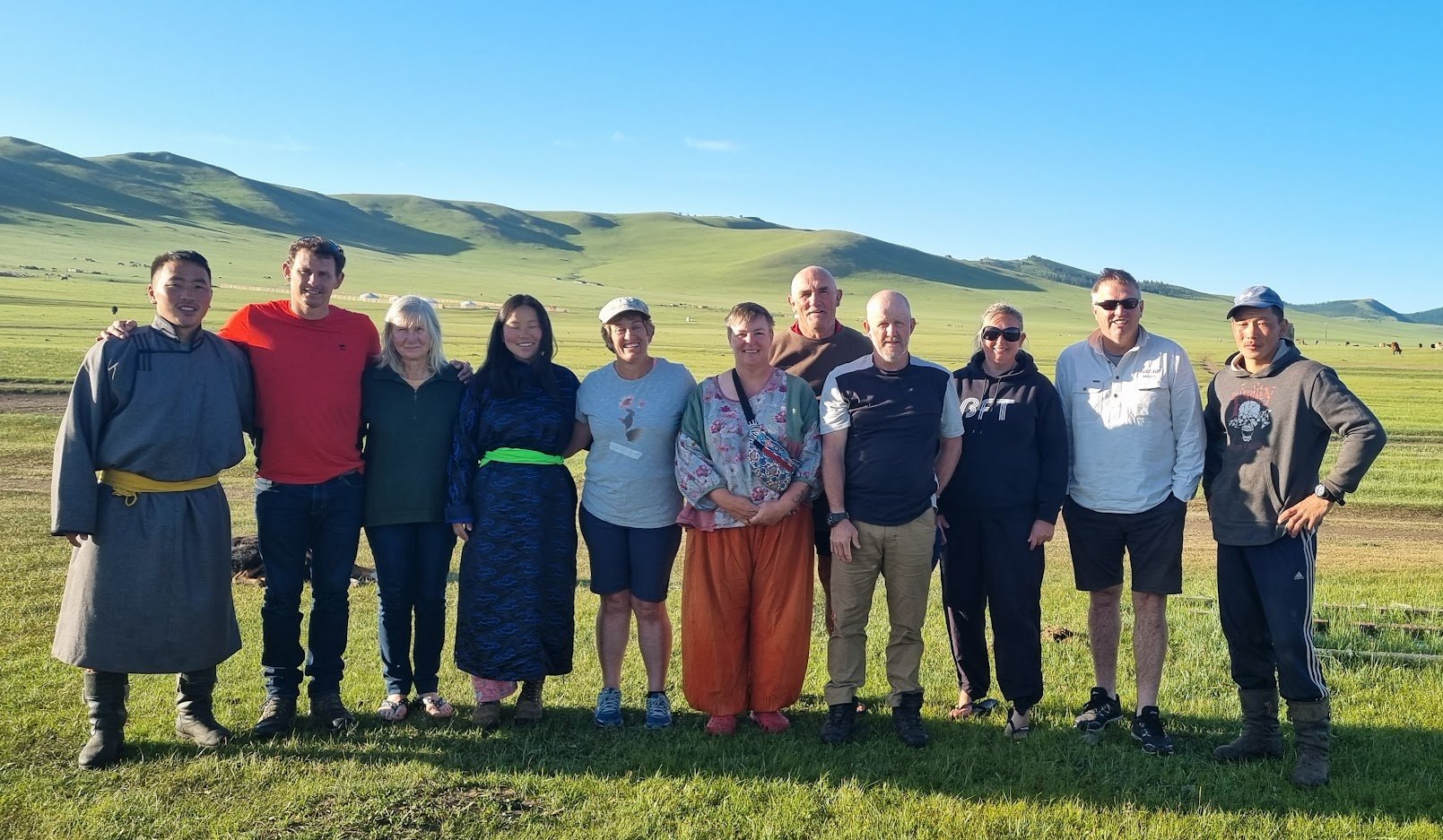
Rabobank Ashburton agribusiness associate Sam Bryan found most of the herders taking part in the courses had little or no experience with machine shears as they took off the wool with scissors.
He was among a 12-strong touring party of bank staff and farmers visiting Mongolia as part of the Share Mongolia Programme, set up in 2020 to introduce modern shearing techniques and equipment.
Tasman farmer Zoe Leetch was the only other South Islander.
The Kiwi team lived with local herders, sleeping in gers — small tent-like dwellings — and enjoying local food.
Mr Bryan said he would go back to Mongolia in a heartbeat as the trip was so rewarding.

Being able to train herders from scratch in machine shearing with basically no words because of the language barrier and seeing their enjoyment and how keen they were to learn was something he would never forget, he said.
Previously it took half an hour to remove wool from their fat-tailed sheep. An average herder might have a family flock of 100 sheep.
"If we can get them doing this within a couple of minutes it’s making a massive difference for them," he said.
Mr Bryan has been in Canterbury for the past 13 years, but grew up on a 600ha sheep and beef farm in the King Country and was a shearer for a year before eventually entering banking.
Shearing training courses were first trialled in Mongolia last year, while four herders spent three months in New Zealand working with shearing gangs.

The team was split into groups and he did a stint carrying out shearing demonstrations in the Gobi Desert, where temperatures reached more than 38degC.
They also tried shearing camels with handy pieces hooked up to a car battery.
Each camel took 10 minutes to remove their fibre and they found it a viable option as camel wool was valuable, he said.
While there, they dined on a dish based on sheep intestines filled with blood, while khorkhog was like a hangi and most of the food was mutton and potatoes.
Fermented horse milk — called airag — and marmot, a large rodent, were also on the menu.

"If we can get enough people trained up and going at a good level they can start teaching other people so it gets that critical threshold where a shearing industry can organically grow."
The project’s motto is farmers helping farmers and extends beyond shearing to eventually help them with wool sales and introduce supply chains. Next on the tick list is sheep dipping as ticks are a problem.
New businesses are starting to be set up as overseas merchants are showing interest in buying the wool.
Some of the herders visiting New Zealand have since set up a "life-changing" shearing contracting business.
They are shearing up to 200 sheep a day compared with 25 sheep before and for the first time are shearing lambs.

Agribusiness manager Paul Brough said they left the herders five shearing machines and a grinder so they could put their new skills into practice.
"It’s a start, but it’s not really enough equipment for everyone, and they’re already screaming out for more of these as they all want to use them at the same time," he said.
"As a result, we’re aiming to try and raise more funding so we can supply more equipment to them in the months ahead."
The latest round of shearing training was funded by the United Nations, the New Zealand embassy in Beijing and the Rabobank Community Fund.




















